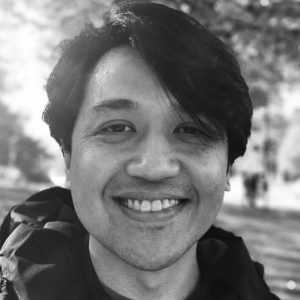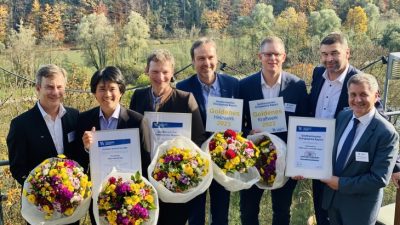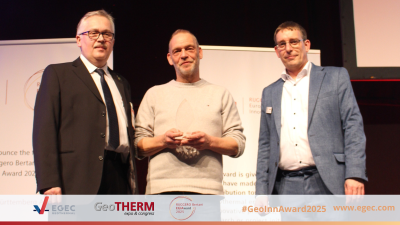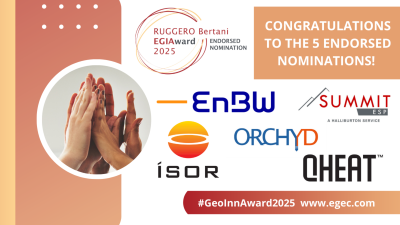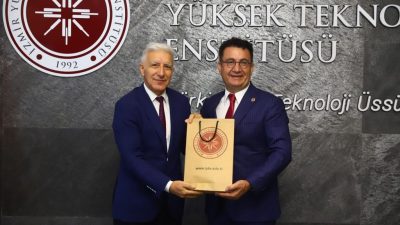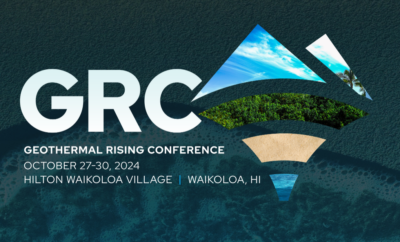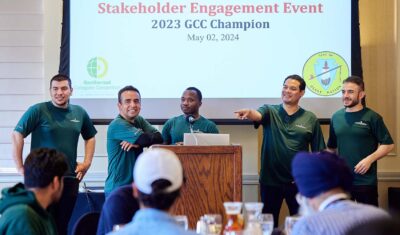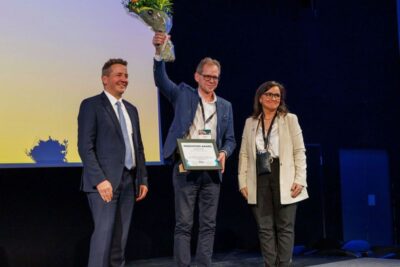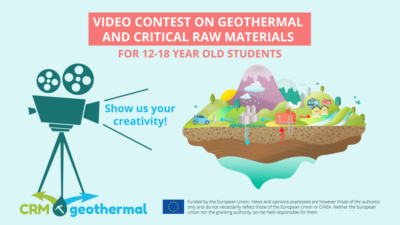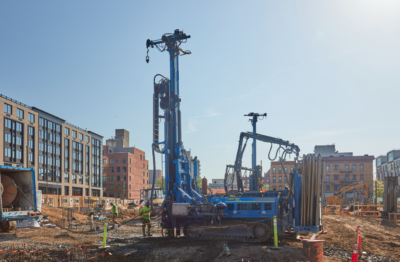Applications open for 2025 Christian Hecht award for geothermal research
Applications are now being accepted for the 2025 Christian Hecht Prize which recognizes outstanding research on deep and medium-depth geothermal energy.
Applications are now being accepted for the eighth edition of the Christian Hecht Prize recognizing outstanding scientific work by young researchers in the field of deep and medium-depth geothermal energy. The application deadline will be on 19 September 2025.
For interested applicants, please submit an abstract of approximately 3,000 characters, concisely summarizing the key content and results of your work, as well as a CV by email to agentur@enerchange.de.
The awardee of the Christian Hecht Prize will be announced the the Praxisforum Geothermie.Bayern which will take place on 22 to 24 October 2025 at the Bürgerhaus Pullach in the Isar Valley in Germany. The prize recognizes young scientists working on application-oriented issues in deep and medium-depth geothermal energy. The focus is particularly on projects with a geographical connection to the Bavarian Molasse Basin and/or the Upper Rhine Graben – two regions that offer enormous geological potential for the utilization of deep geothermal energy sources
The Christian Hecht Prize is awarded by a panel of experts from academia and industry. In addition to free access to the Praxisforum Geothermie.Bayern, the winner will receive cash prize money and the opportunity to present their work to a distinguished audience from the geothermal industry at the awards ceremony on the day of the conference, October 23, 2025. In addition, the two best submissions will be offered the opportunity to present their research results to a wider audience in an international webinar
About the past winners
Last year, Chan-Neng Hsu was awarded a prize for his master’s thesis entitled “Development of a Workflow for Migrating a Reservoir Model from Petrel/Eclipse to the MOOSE Framework/GOLEM Using a Geothermal Plant of the Munich Municipal Utilities (SWM) as an Example .” The work focuses on the simulation of geothermal energy development in the greater Munich area. Hsu develops an innovative approach for transferring existing models into a new simulation environment. By skillfully combining the strengths of both software systems, a seamless and efficient workflow has been established – a significant contribution to the further development of geothermal applications in urban areas.
In 2023, Christopher Schifflechner won the Christian Hecht Prize. His doctoral thesis at the Technical University of Munich (TUM) is titled “Efficient and flexible geothermal systems for the joint provision of electricity, heat, and cooling .” In it, he investigated the growing importance of environmentally friendly cooling using sorption chillers in combination with deep geothermal energy. His work not only analyzed the technical challenges of integrating them into combined energy supply systems but also provided a sound thermo-economic evaluation of these pioneering concepts.
In 2022, the award went to Felix Schölderle for his dissertation “Fiber optic monitoring in a deep geothermal production well in the Upper Jurassic aquifer in southern Germany .” The work, conducted at the Chair of Hydrogeology at TUM, accompanied the installation of a fiber optic cable in a deep geothermal well. The innovative monitoring enabled the acquisition of comprehensive data under various operating conditions—from shutdown to injection to production—and thus makes a significant contribution to a better understanding of geothermal processes in deep aquifers.
In 2021, the prize was shared – a testament to the exceptional quality of the submitted work. Matthäus Irl (TUM) impressed with his research on the analysis and optimization of the operation of hydrothermal deep geothermal plants with electricity and heat utilization. Sebastian Eyerer, also from TUM, developed a promising experimental approach to improve the ORC cycle through the targeted investigation of working fluids and plant architecture – an important step towards more efficient geothermal power plants.
Source: Tiefe Geothermie







